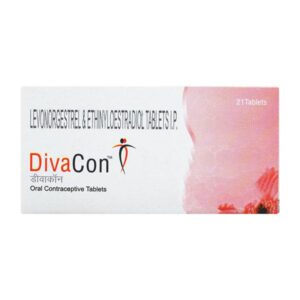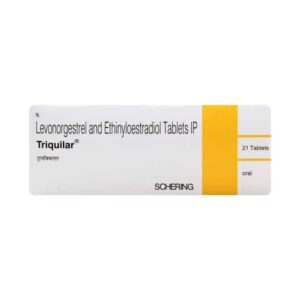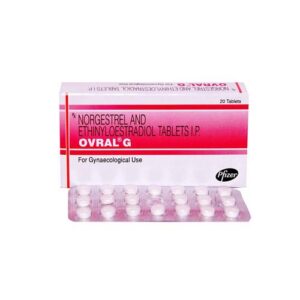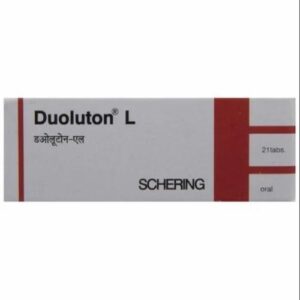ETHINYL ESTRADIOL + LEVONORGESTREL
Ethinyl Estradiol: Ethinyl Estradiol is a synthetic form of the hormone estrogen. It is commonly used as a component of combined oral contraceptive pills to prevent pregnancy. It is also prescribed in the treatment of menstrual disorders, such as irregular periods, painful periods, and menopausal symptoms.
The mechanism of action of Ethinyl Estradiol is primarily based on its ability to suppress the release of certain hormones from the brain that control the growth and release of eggs from the ovaries. By inhibiting ovulation, it reduces the chance of fertilization.
The typical dose of Ethinyl Estradiol in combined oral contraceptive pills is 20-50 micrograms per day. The dosage may vary depending on the specific formulation of the contraceptive pill and the individual’s response to treatment. It is usually taken orally, once a day, preferably at the same time every day.
Common side effects of Ethinyl Estradiol include nausea, headache, breast tenderness, breakthrough bleeding, and changes in menstrual bleeding patterns. Other possible side effects include mood changes, weight gain, acne, decreased libido, and increased blood pressure. It is important to note that serious side effects, such as blood clots, heart attack, and stroke, are rare but can occur, especially in individuals with certain risk factors such as smoking, obesity, and a history of blood clots.
It is essential to consult with a healthcare provider before starting Ethinyl Estradiol or any other medication to ensure it is suitable for an individual’s specific needs and to discuss potential risks and benefits.
Levonorgestrel: Levonorgestrel is a synthetic hormone that is commonly used as an emergency contraception pill, also known as the “morning-after pill.” It is available over-the-counter and is used to prevent pregnancy after unprotected sex or contraceptive failure (such as a condom breaking or missing birth control pills).
The mechanism of action of Levonorgestrel is not entirely understood. However, it primarily works by preventing fertilization of the egg and inhibiting implantation of a fertilized egg in the uterus. It does not terminate an existing pregnancy.
The usual recommended dose of Levonorgestrel is 1.5 mg, taken as a single oral dose as soon as possible within 72 hours (3 days) after unprotected sex or contraceptive failure. It is more effective the sooner it is taken after unprotected intercourse.
Common side effects of Levonorgestrel may include nausea, vomiting, abdominal pain, fatigue, headache, dizziness, breast tenderness, and changes in menstrual bleeding patterns. These side effects are usually temporary and resolve on their own.
It is important to note that Levonorgestrel is not a regular form of contraception, and it should not be used as a regular birth control pill substitute. It is intended for emergency use only.
As with any medication, Levonorgestrel may not be suitable for everyone. It is important to talk to a healthcare provider or pharmacist before taking this medication, especially if you have any pre-existing medical conditions or are taking other medications. They can provide personalized advice and recommendations based on your individual circumstances.





